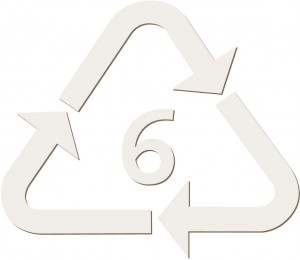“The rising costs of healthcare waste management in South Africa and the rest of the world are forcing hospitals and clinics to rethink the way in which they deal with their healthcare waste”. This is the opinion of Southern African Vinyls Association CEO, Delanie Bezuidenhout, who, in partnership with Adcock Ingram Critical Care, recently launched an innovative idea for implementing a PVC recycling programme that separates non-hazardous PVC waste from healthcare risk waste.
 As part of its drive to implement a PVC recycling initiative at hospitals and health care facilities around South Africa, SAVA has recently trained close to 1 000 hospital staff over a period of 53 hours about the ins and outs of PVC recycling.
As part of its drive to implement a PVC recycling initiative at hospitals and health care facilities around South Africa, SAVA has recently trained close to 1 000 hospital staff over a period of 53 hours about the ins and outs of PVC recycling.
PVC is a versatile polymer which is widely used in the healthcare environment for a wide range of different applications. These range from rigid PVC used in piping, to soft applications such as IV bags, tubing and oxygen masks in hospitals. Inflatable splints, blister packs for medicines and flooring are all PVC products, and most of it can be diverted from landfill or recycled into a wide variety of new materials, such as shoe soles, pipes, hoses, door mats, gum boots and traffic cones.
According to Bezuidenhout, the healthcare environment uses large volumes of safe, high performance PVC that is highly recyclable. “Many of these products never even make contact with patients, but are thrown away indiscriminately because of over-cautious practices that were introduced in the 1980s when HIV and Aids were peaking in the public awareness, but little was understood about the spread of the disease at the time,” she says.
SAVA advocates that there are numerous advantages for hospitals wanting to pursue this course of action, such as contributing towards the overall environmental compliance for the facility, enhancing community relationships, avoiding long-term liability, increasing staff morale, as well as various specific economic benefits.
“Hospital waste management processes have significantly improved over the last decade and our own experience and results of similar projects implemented successfully elsewhere in the world have proven that the recycling of non-hazardous medical waste has the potential to be successfully implemented in health care settings, thereby contributing to the efficient use of resources, while improving cost-efficiency or even being cost neutral for hospitals,” says Bezuidenhout.
There are various challenges to any recovery operation and SAVA has found that one of the biggest issues with this specific project was the lack of suitable storage space for waste bins, whilst the logistics of moving waste was also seen to be a prominent challenge that needed to be overcome.
“We are proud to report that we have managed to successfully navigate these obstacles in various pilot projects that have been launched in the Western Cape and more recently also in Gauteng. Through good planning, ongoing education, constant liaison with the waste management team, and having a project champion on site, these challenges can be overcome,” Bezuidenhout concludes.